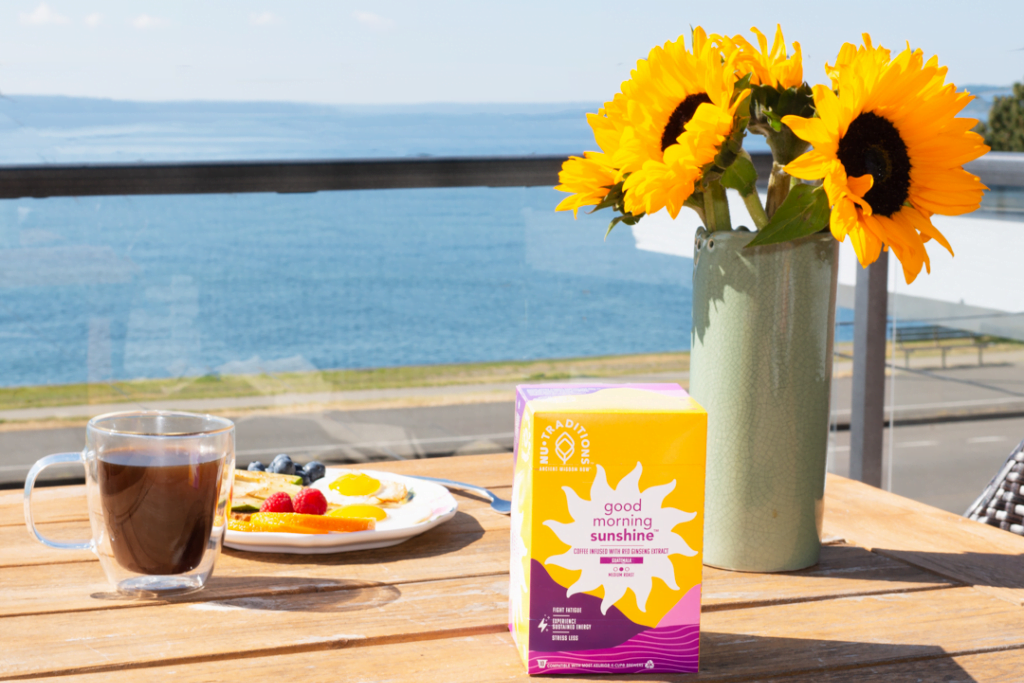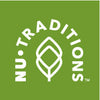Better Together: Get to Know the Entourage Effect and Why It Matters in Traditional Chinese Medicine

Listen to any wellness podcast lately, and you’ll hear mention of the entourage effect. Unlike the HBO series that ran in the early 2000s, this entourage has nothing to do with fame and fortune. Instead, the entourage effect refers to how certain things work better together than on their own. While often discussed in relation to cannabis or hemp (in the context of CBD, THC and other components taken together than solo), the entourage effect applies to adaptogens – and to Traditional Chinese Medicine.
Here’s a look at what the entourage effect is and how it applies to some of the herbs you know and love.
What is the Entourage Effect?
Think of the entourage effect as a peanut butter and jelly sandwich. A jelly sandwich is fine. A peanut butter sandwich is also fine. But put both ingredients together? You have a much tastier sandwich, right? Instead of enjoying only the sweetness of jelly or only the savory richness of peanut butter, the two work in tandem to complement and highlight each other. By combining peanut butter and jelly, you create contrast and a flavor combo that is almost universally loved, from the pickiest of preschoolers to busy parents. While not a perfect example (since, sadly, peanut butter and jelly aren’t found together in nature), it does explain the concept.
Humans are another example of the entourage effect. We can do plenty on our own (as we all learned in the last year!), but we’re stronger and better together. Strength in numbers and all that.
The research is still out on the entourage effect in cannabis, but it mimics nature – and the entire holistic approach to health and well-being. Instead of isolating one single component, you use the plant as a whole or create a full- or broad-spectrum extract of the entire plant (or the parts used in herbalism). In nature, you can’t find only CBD or only THC. You find the whole plant.
And from a holistic perspective, the body works the same way. You can’t look at the heart, for example, without looking at everything else it influences – every system, organ, tissue and cell it nourishes by pumping blood. In nature, nothing happens in a vacuum, and the entourage effect simply reflects that reality.

How Traditional Chinese Medicine Works Like the Entourage Effect
So how does the entourage effect apply to Traditional Chinese Medicine? While this ancient, respected practice didn’t coin the term, it shares many of the same principles about nature. TCM sees the body as a scaled-down version of the universe, composed – like everything else in the world – of qi, or energy. As a microcosm of the universe, humans are intricately connected to and influenced by nature and all its elemental forces (wood, fire, earth, metal and water).
Everything is divided into the opposing forces of yin and yang, and the goal is to maintain or restore balance of the two. TCM divides the body into physical and energetic systems and organs, connected through paths called meridians, through which qi (the energy of life) flows.
If TCM is new to you, it might sound complicated, but, like the entourage effect, it’s simply a way to look at the body holistically. And while holistic is often used as a term for all things woo/natural/trendy/green, it really just means “whole.” We look at the body as a whole, then use the entirety of a plant to support and bring balance.

How Adaptogens Work
And that brings us to adaptogens, like the organic red ginseng extract in our Good Morning Sunshine™ coffee + adaptogens. Adaptogens are a category of herbs used in TCM and other forms of herbalism around the world that naturally help you power through your day – and deal with whatever happens.
They’re called adaptogens because they help your mind and body adapt, and many of them have been used for centuries in TCM. Adaptogens help us manage the stresses of everyday life, but there’s more to their story.* These herbs can often thrive in harsh conditions and environments, which is how scientists became interested in their impacts on the human mind and body.*
Despite their long history of use, the term “adaptogen” is relatively new, having been introduced by a Russian scientist in 1940. To be an adaptogen, a plant must meet three criteria:
- Non-specific and support the body amid adverse conditions (physical and emotional stress)
- Maintain homeostasis (balance) in the body
- Non-harming to the body’s normal functions
These plants have been used therapeutically for thousands of years – and now modern science backs up that rich history of traditional use. Adaptogens like red ginseng also support your immune system.* They can help you sleep more, help you find balance, and even help you stress less.*
Ginseng is one of the most studied adaptogens.* With ginseng and the other herbs we use in our products, we embrace the entourage effect. That is, we create our pure and potent extracts from the entirety of the plant part used in herbalism. Ginseng, for example, does contain specific compounds. And while we measure the levels of certain ones, we extract the whole root as nature intended.

Savor a cup of Good Morning Sunshine™ every day for a few weeks to feel its adaptogenic benefits.* (These herbs are usually taken for longer periods of time, though you can also feel their benefits faster.*) The result is the perfect combination of ancient wisdom and modern science, in a format designed to work in your busy modern life.
Beyond the scientific explanation, it’s also totally acceptable to think of the caffeine in our organic, Fair Trade Certified coffee and the organic red ginseng extract in every Good Morning Sunshine™ coffee + adaptogens pod as your own personal entourage, there to hype you up and get you through the day! By including both, each cup helps you fight fatigue with more than just caffeine, so you need a single pod (not a whole pot). It’s the best of both worlds: You get to have your morning cup of coffee for energy – but you can also expect more from that cup!
*These statements have not been evaluated by the Food and Drug Administration. These products are not intended to diagnose, treat, cure or prevent any disease.



